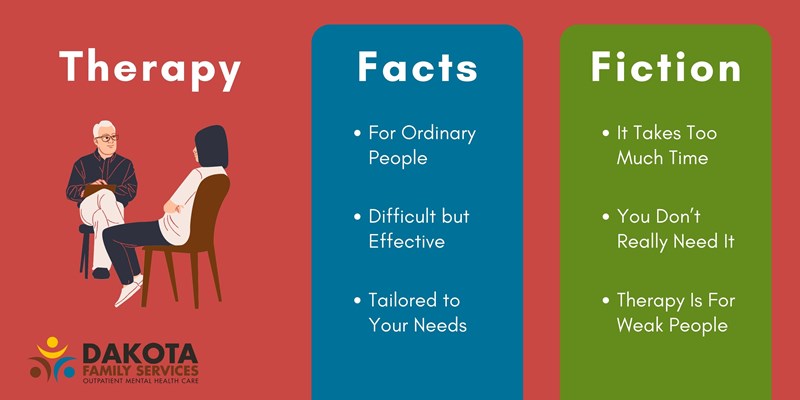Unlocking the Tricks of Mental Health And Wellness: An Introduction of Counseling and Therapy Choices
Psychological wellness is a complex and important aspect of overall wellness. Various counseling and treatment alternatives exist to resolve numerous psychological difficulties. Each approach offers distinct advantages and methods customized to individual requirements. Recognizing these options is important for any person looking for to boost their psychological health. Mental Health Resources. What factors should one consider when discovering these opportunities? The response may expose a path to a much healthier mood
Comprehending Mental Health And Wellness and Its Value
Psychological wellness incorporates the psychological, mental, and social health of people, significantly influencing how they believe, feel, and act. Its relevance can not be overemphasized, as it affects every element of life, including relationships, job efficiency, and general lifestyle. Individuals with good psychological health and wellness have a tendency to manage stress and anxiety better, keep much healthier connections, and make educated choices. Alternatively, inadequate mental health can lead to psychological distress, damaged performance, and numerous psychological conditions, which might need professional treatment. Understanding psychological wellness is necessary for recognizing the indications of distress and the need for support. Recognition likewise advertises empathy and lowers preconception, encouraging people to seek help when needed. By prioritizing psychological wellness, neighborhoods can foster environments that sustain emotional wellness, ultimately causing much healthier, much more resilient people. This structure functions as a crucial action towards effective mental health counseling and therapy options.
Kinds Of Therapy Approaches
Counseling methods vary widely, each tailored to meet the unique needs of individuals seeking assistance. Amongst the most typical kinds are cognitive-behavioral therapy (CBT), which concentrates on identifying and changing unfavorable idea patterns, and person-centered treatment, which highlights compassion and approval. Psychodynamic treatment explores subconscious processes and past experiences to understand present habits, while solution-focused short treatment intends to recognize services instead of explore problems.Additionally, family members treatment addresses relational dynamics and communication within family members, fostering healthier interactions. Group counseling supplies a common area for individuals to share experiences and sustain each other. Various other strategies consist of existential treatment, which urges people to discover significance and function, and art or music therapy, which utilizes imaginative expression as a restorative tool. Each technique offers unique methods and viewpoints, permitting clients to find one of the most suitable method for their individual development and healing journeys.
Exploring Various Therapy Techniques
In the domain name of psychological health counseling, different therapy modalities supply distinctive techniques to treatment. Cognitive Behavior modification emphasizes the link in between habits and thoughts, while Psychodynamic Therapy checks out unconscious impacts on emotional well-being. In Addition, Mindfulness-Based Strategies advertise present-moment understanding as a method to improve psychological regulation and total psychological health.
Cognitive Behavior Modification
Cognitive Behavior Modification (CBT) stands apart as one of one of the most extensively practiced and researched techniques in mental health and wellness therapy. This technique concentrates on the affiliation in between thoughts, habits, and sensations, highlighting that modifying negative thought patterns can result in improved psychological well-being and behavior adjustments. CBT is structured, commonly including a limited variety of sessions, and intends to gear up people with sensible abilities to handle their signs and symptoms. It is efficient for a range of problems, including anxiousness conditions, depression, and post-traumatic stress and anxiety disorder. By using methods such as cognitive restructuring and direct exposure treatment, CBT cultivates resilience and empowers clients to confront challenges head-on, making it a valuable choice in the landscape of mental health therapies.
Psychodynamic Treatment Techniques
Psychodynamic treatment approaches offer a deep expedition of the unconscious mind and its impact on actions and psychological wellness. Rooted in Freudian theory, these methods highlight the significance of early youth experiences and unconscious disputes. With methods such as free organization, desire evaluation, and transfer, people acquire insight into their thoughts and feelings, cultivating self-awareness and understanding. This therapeutic method urges customers to reveal quelched emotions and unsolved problems, which can be critical in attending to present psychological difficulties. By examining the interaction in between previous experiences and present behaviors, psychodynamic therapy aims to promote psychological recovery and individual growth. Ultimately, it provides a framework for individuals to discover complicated internal dynamics that influence their psychological health.

Mindfulness-Based Methods
While conventional treatments commonly concentrate on past experiences, mindfulness-based strategies prioritize present-moment awareness as a pathway to emotional well-being. These techniques, including mindfulness-based cognitive treatment (MBCT) and mindfulness-based anxiety reduction (MBSR), motivate people to involve totally with their ideas and feelings without judgment. Experts learn to observe their frame of minds, promoting a higher understanding of psychological triggers and feedbacks. This technique not just reduces signs and symptoms of anxiousness and clinical depression but also improves overall psychological resilience. By integrating mindfulness workouts, such as meditation and deep breathing, customers grow a sense of peace and quality. Inevitably, mindfulness-based methods equip people to browse life's obstacles with increased recognition and acceptance, promoting a much healthier relationship with their ideas and feelings.
The Role of a Specialist or Counselor
An experienced therapist or therapist plays a vital function in sustaining individuals through their psychological wellness trips. They supply a secure, non-judgmental area where clients can share their thoughts and sensations openly. Cognitive Behavioural Therapy. By employing different restorative methods tailored to each individual's demands, therapists help customers check out underlying problems that may add to their mental wellness challenges.Therapists provide guidance and tools to deal with stress, anxiety, clinical depression, and other emotional difficulties. Their training outfits them to acknowledge patterns in actions and believed procedures, facilitating insights that result in personal development. They additionally cultivate a strong healing alliance, which is essential for successful outcomes.Moreover, therapists continue to be fully commited to confidentiality and ethical requirements, making sure a trusting atmosphere. Ultimately, the function of a therapist or therapist is to encourage people, motivating them to establish resilience and much healthier coping techniques while guiding via life's complexities
How to Choose the Right Therapy or Treatment Choice
Picking the best therapy or treatment alternative begins with reviewing individual requirements. It is important to understand personal challenges and objectives prior to exploring different therapy designs. This fundamental step can greatly affect the performance of the selected technique.
Examine Your Needs

Just how can people successfully evaluate their mental health needs when reviewing counseling or therapy options? First, they need to assess their emotional state and identify details concerns, such as anxiousness, anxiety, or partnership difficulties. Journaling can be a helpful device for tracking ideas and feelings in time. Additionally, individuals might benefit from seeking responses from relied on good friends or member of the family relating to perceived modifications in actions or state of mind. It is also handy to assess personal objectives for treatment, such as boosting coping skills or getting understanding right into personal patterns. Lastly, looking into numerous therapy techniques and their suitability for particular demands can aid in making an educated choice. Ultimately, self-awareness plays a pivotal role in choosing the ideal course for psychological wellness assistance.
Discover Treatment Styles
While passing through the diverse landscape of treatment choices, people must consider numerous styles of counseling to find the ideal suitable for their special requirements. Cognitive Behavior Modification (CBT) concentrates on changing negative thought patterns, while Psychodynamic Therapy explores unconscious procedures and previous experiences. Humanistic techniques highlight personal development and self-actualization, promoting a helpful atmosphere. In addition, mindfulness-based therapies grow present-moment understanding, helping emotional law. For those seeking structure, Solution-Focused Quick Therapy targets specific objectives and solutions. Group therapy provides a public setting for shared experiences and assistance. Inevitably, people should show on their preferences, comfort levels, and specific obstacles, ensuring they pick a healing style that resonates with their individual trip toward mental well-being.
Getting Rid Of Obstacles to Looking For Aid

The Advantages of Therapy and Therapy for Psychological Health
Seeking help for psychological health and wellness difficulties can lead to considerable enhancements in general health. Counseling and therapy supply individuals with a safe space to explore their thoughts and sensations, promoting self-awareness and individual development. These professional services furnish customers with dealing approaches and analytical skills customized to their special situations.Moreover, therapy can minimize signs and symptoms of anxiety, clinical depression, and various other mental health and wellness problems, improving psychological resilience. Regular sessions promote accountability and urge individuals to establish and accomplish individual objectives. Via numerous healing modalities, such as cognitive-behavioral therapy or mindfulness methods, customers learn to reframe unfavorable thoughts and develop much healthier behaviors.Additionally, the therapeutic partnership itself can be a resource of support, aiding to fight seclusion and isolation. Overall, engaging in therapy and treatment is an aggressive action toward attaining mental health, enabling people to lead even more meeting lives.
Regularly Asked Questions
For How Long Does Counseling or Treatment Usually Last?
The period of counseling or therapy varies significantly, frequently lasting from a few sessions to numerous months or years. Factors influencing this consist of the individual's specific needs, the sort of treatment, and healing objectives.
What Should I Expect Throughout My Very First Session?
Throughout the very first session, people can anticipate an introduction, discussion of issues, and the therapist's technique. They may finish evaluations and develop goals, cultivating a safe setting for open communication and building relationship.

Exist Any Dangers Related To Treatment?
Treatment can involve dangers, such as psychological discomfort, vulnerability, or facing painful memories. While these challenges might occur, they can likewise cause individual development and recovery, making the therapeutic directory process facility yet potentially satisfying.
How Can I Tell if My Therapist Is a Great Fit?
Figuring out if a therapist is an excellent fit includes assessing convenience, interaction style, and healing approach. Favorable rapport and development in the direction of goals are signs of a suitable suit, vital for effective psychological health and wellness assistance.
Will My Insurance Cover Counseling or Treatment Procedure?
Figuring out insurance coverage for counseling or treatment sessions typically requires getting in touch with the insurance coverage copyright straight. Policies vary substantially, so individuals need to confirm advantages, co-pays, and any necessary pre-approvals prior to pursuing therapy solutions. Among the most common kinds are cognitive-behavioral therapy (CBT), which focuses on recognizing and changing negative idea patterns, and person-centered treatment, which stresses compassion and acceptance. Psychodynamic therapy discovers subconscious procedures and previous experiences to comprehend present behavior, while solution-focused short therapy intends to recognize options rather than check out problems.Additionally, family treatment addresses relational characteristics and communication within households, fostering much healthier interactions. Various other strategies include existential therapy, which urges people to discover significance and function, and art or songs therapy, which uses innovative expression as a restorative device. Cognitive Behavioral Therapy highlights the connection between ideas and behaviors, while Psychodynamic Treatment discovers subconscious impacts on psychological health. Cognitive Behavior Treatment (CBT) concentrates on altering negative thought patterns, while Psychodynamic Therapy explores past experiences and subconscious processes.